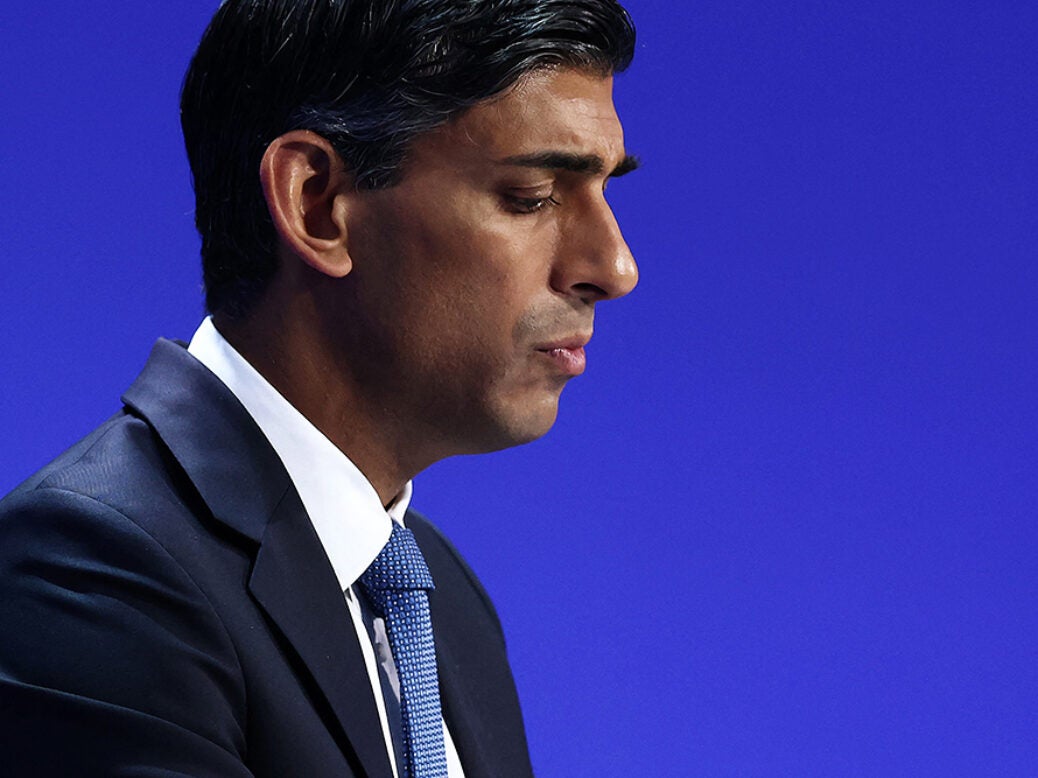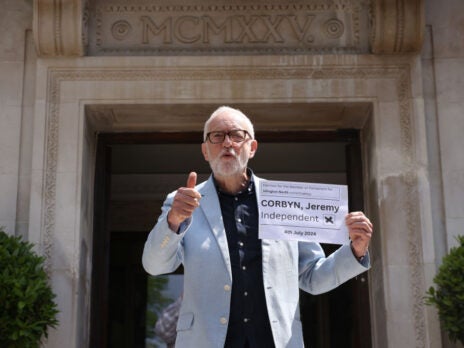
When would be best for the government to “cut and run” and hold the next general election? Sooner or later? This year or next? Or how about January 2025 – the latest possible moment Rishi Sunak could choose? There’s arguments in favour of each of them.
An argument for going sooner
The data doesn’t look good for the Tories. They are far behind in the opinion polls on voting intention, on the economy and on likeability. Any credible probability model would put their chances of being the largest party – let alone winning a parliamentary majority – at less than 5 per cent. The mountain for the government to climb to regain public credibility is a steep one indeed.
If we accept this, and dismiss any hope of a Conservative recovery, then the argument runs as follows: lose today, begin recovery today. Start to refresh your party’s image and campaign operation in time for 2027 or 2028. If you can’t turn the economy or, indeed, the polling tide around, then why wait?
In fact, assuming that there would be no gain from delaying leads to another possibility: things could get even worse. Sunak’s personal ratings – which were significantly ahead of his party’s in the early months of his premiership – have steadily declined in recent months.
The longer Sunak has served, the more disliked he has become. The longer Labour leads on the economy, the more entrenched the belief that the Tories have ruined it becomes. At the start of Sunak’s premiership 29 per cent of Britons looked on him favourably, compared with 25 per cent who looked on him poorly. Since then Sunak’s favourability has risen by just four percentage points but his unfavourability has surged by 24 points to 49 per cent. A cursory listen to his media interviews doesn’t suggest a Prime Minister who is calm under pressure or – more importantly – as adept at self-promotion as his chancellorship implied.
But what if, in spite of all of this, the Conservatives delay in the Micawberish hope that “something will turn up”?
[See also: What could go wrong for Keir Starmer?]
An argument for going later
For my sins, I’ve been one of the more resolute commentators on the state of public opinion. Since Liz Truss’s downfall, I’ve come to the view that something snapped in the median voter. The narrative that it’s “time for a change” holds increasing sway and, simply, will not go away before the election.
But what if I am wrong? Public opinion is a fickle thing. Forecasting with certainty is foolish. Small fluctuations in the cost of living could turn the nation’s attention away from inflation and towards more comfortable terrain for the government, such as small boat crossings or the net-zero debate. Recall how Covid-19 reset public opinion. It created a temporary “rally around the flag” effect for the UK government and its international counterparts. (But also, I would argue, helped Labour to recover faster than it should have done following its 2019 defeat.) Could a new global or domestic emergency work to the Conservatives’ advantage?
If the Conservatives are confident that they can hold on until the public’s overwhelming focus on the economy diminishes, then, yes, they should wait. Because only once the country is obsessing over something other than prices and wages can the Tories compete electorally with the opposition. Lower inflation and lower interest rates by the end of 2024 – which could ensure rising living standards – could help to achieve this. In 2015, when real wages were rising as oil prices plummeted, the Tories won a majority. By contrast, in 2017, when they were falling, they lost their majority.
In addition, while Sunak’s net favourability has worsened, previous prime ministers have recovered. In 2014 David Cameron’s rating stood at -19 (compared to Sunak’s -16 today). Yet he went on to gain nine points in a year and won the day in 2015.
And Sunak vs Starmer is arguably Labour’s least impressive metric at present. Keir Starmer has the sympathy of 40 per cent of voters, compared to 37 per cent who feel otherwise. That’s a net score of +3, but of all the Conservatives' disadvantages, this would be the easiest to overcome.
But this isn’t 2014 or 2015. This is a period in which Labour’s leads are 20 points, not five points, and the party is leading on the metric that matters most when determining relative competence: the economy. In 2014, by contrast, the Tories led decisively on the economy, while Cameron had a commanding lead over Ed Miliband on personal popularity.
Nevertheless, in historical terms, Sunak is not performing quite as badly as might be expected of a leader destined for a landslide defeat. According to Gallup, a year before the 1997 election John Major had a net favourability rating of -40. As Sunak will be well aware, things could get even worse – hence his dilemma.
[See also: Who would win if an election was held today?]


